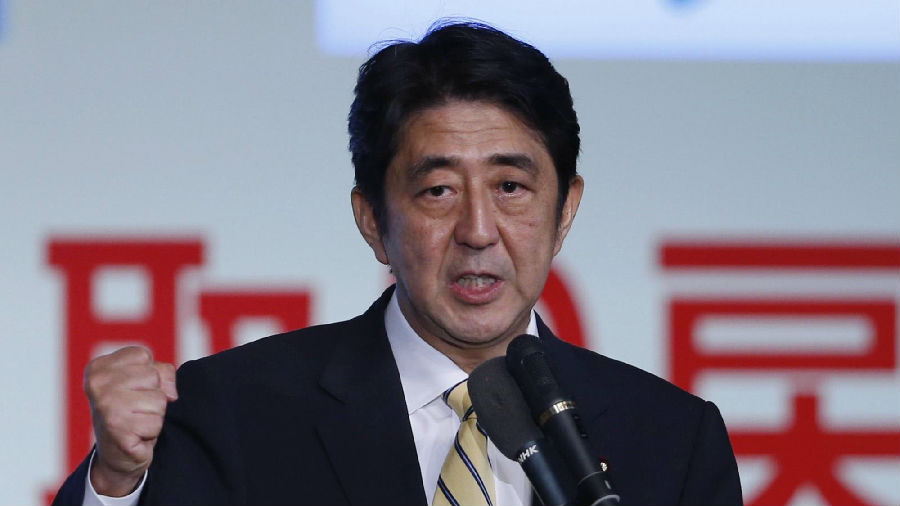(单词翻译:单击)
中英文本
Finance and economics: Inequality in Japan The secure v the poor
财经:日本社会的不平等,稳定工作者与穷人
The problem is not the super-rich.
问题不在于巨富之人。
IN THOMAS PIKETTY'S bestseller, “Capital in the Twenty-First Century”, Japan appears as another rich country in which wealth is becoming ever more concentrated.
在托马斯·皮克提的畅销书《21世纪资本论》中,日本作为一个财富正在变得越来越集中的富有国家出现。
It is certainly another rich country in which the book is selling well.
当然,它也是又一个畅销此书的富有国家。

Mr Piketty visited Tokyo this month, to a rapturous reception.
本月,皮克提先生应盛情邀请访问了东京。
Yet Japan may be the place where his thesis holds up least well.
然而日本还是一个对他在本书中的思想最不追捧的国家。
The bursting of Japan's asset bubble in 1991 is one reason why the rich have amassed less than in America or many European countries.
1991年,日本地产泡沫就破灭了。这是日本富人源何比美国或一些欧洲国家的富人聚集财富较少的原因之一。
The share of wealth held by the richest tenth of Japanese is lower than in famously egalitarian spots such as Norway and Sweden.
占日本人口十分之一的富人所握有的财富比挪威和瑞典的富人们要少,后两者是以平等主义闻名与世。
In fact, it is the second-lowest of the 46 economies surveyed by Credit Suisse Research Institute, above only Belgium.
事实上,根据瑞士信用研究所对46个经济体在这方面的调查,日本位列倒数第二,仅高于比利时。
The share of income going to the wealthiest has been fairly stable too.
国民收入中流向富人的比例也已相当稳定了。
Levels of executive pay are far less egregious than in America.
只对富人们征收的费用又远低于美国。
According to an analysis prepared for the Wall Street Journal by Mr Piketty's collaborators, the share of national income taken by the top 1% in Japan, excluding capital gains, fell from a high of 9.5% in 2008 to 9% in 2012.
根据出自皮克提合作者的一份“华尔街新闻”的分析报告,不包括资本收益,占日本人口1%的上层人士所占有的国民收入比例已经从2008年的9.5%下降到了2012年的9%。
Other types of inequality, however, are on the rise.
然而其他类型的不平等也在增加。
The most important is not between the mega-rich and the rest, as “Capital” would have it, but between a privileged cadre of workers on permanent contracts and those with more precarious jobs, who account for a rising share of the workforce.
最重要的是这些上升的不平等不是存在于巨富与其他人之间,而是存在于签订了终生劳动合同、享有特权的骨干工人与比例越来越大的那些工作更不稳定的劳动力之间。
The average annual salary for permanent employees is around ¥5m ($41,500) , compared with ¥2m for less secure workers.
长期工作者的平均年薪是约500万日元(41500美元),而工作不稳定者仅为200万日元。
Many argue that what Japan really needs is a lot more inequality, but of a different kind.
一些人认为日本的不平等现象有所增加,但类型不同。
Its employment system still tends to reward seniority and status rather than performance, in what Japanese call aku byodo or “bad egalitarianism”.
它的雇佣体系仍趋向于让高级别和地位的雇员获得更多,而非根据受雇者的工作表现,这就是日本人所谓的“糟糕的平均主义”。
If people were paid for what they accomplish, argues Robert Feldman of Morgan Stanley, the economy would grow faster.
如果实行按劳取酬,那么日本的经济将会获得更快的发展,摩根斯坦利公司的罗伯特·菲德曼如是说。
And Japan's chronically low levels of business creation mean that there is worryingly little wealth inequality of the sort created by entrepreneurs who become billionaires by dreaming up exciting new products and services.
对于那些力求以创造出令人兴奋的新产品和服务而跻身百万富翁行列的创业者们来说,日本长期低水平的商业创造意味着这方面的财富差距不够大,令人担心。
None of that has stopped “Capital” selling over 130,000 copies so far in Japan.
以上这些都不能阻挡《21世纪资本论》这本书在日本迄今为止的销量已超过了13万本。
Idiots' guides to the 700-page tome have also done well.
Idiots’ guides公司对这部700页的大部头所作的也非常棒。
Mr Piketty's timing is ideal, for he has tapped into growing doubts about Abenomics, the economic-revival plan of Shinzo Abe, the prime minister.
皮克提先生的时间把握得很完美,因为他已将人们对于日本现任首相安倍的经济复兴计划,即安倍经济学不断上升的疑虑写进了书中。
By inflating asset prices, Mr Abe's schemes could increase the gap between haves and have nots, Mr Piketty warned during his visit.
皮克提先生在本月的访问期间警告说,通过提高地产价格,安倍计划可能会拉大既得与未得之间的差距。
Ironically, however, Mr Abe's main economic concern at the moment is bullying big companies into lifting workers' pay.
然后讽刺的是,安倍在现阶段对于经济的主要关注是迫使大公司提升工人的工资。
译文属译生译世
重点讲解
1.super-rich 超级富豪
例句:Here are some of the most likely trends among the super-rich for 2008.
以下是2008年中超级富人中最有可能出现的一些趋势。
2.at the moment 此刻;当时
例句:I can just about tolerate it at the moment.
当时我差一点就忍受不了了。
3.economic-revival 经济复苏
例句:One year later, Argentina had defaulted on its debt, and Brazil was at the beginning of a 10-year economic revival.
一年后,阿根廷债务违约,而巴西则刚刚开始一场历时10年的经济复苏。
4.wealth inequality 财富分配不均
例句:Under such situation, how should we understand the problem of global wealth inequality?
在这个新的世界形势下,我们应该怎样理解全球贫富悬殊的问题呢?


